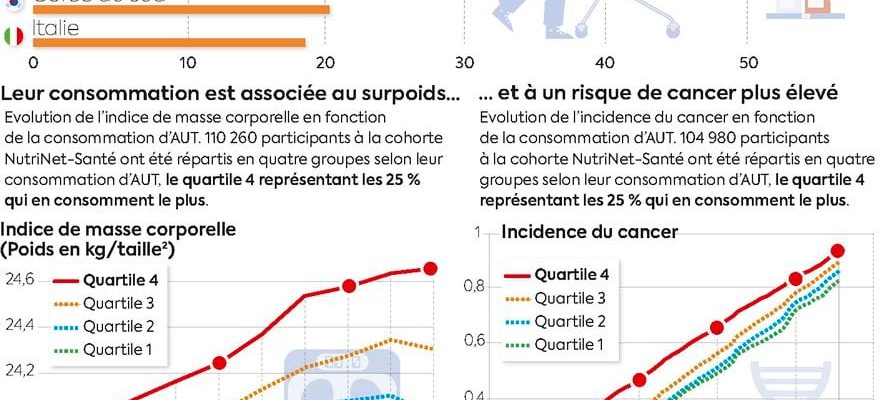It is a new stone in the building for understanding the harmfulness of food additives for health. In a study published this Tuesday, February 13, researchers, notably from INRAE and Inserm, brought together in the nutritional epidemiology research team (Cress-Eren), noted the possible links between the dietary intake of additives food emulsifiers and the occurrence of cancers.
Emulsifying food additives were particularly studied by the team of researchers. In addition to preservative, sweetener and antioxidant additives, emulsifier additives play an important role in the manufacturing of food products. Their use aims to improve the texture of products while extending their shelf life. Margarine, mayonnaise, creamy sauces, candies, packaged processed foods, confectionery and many baked goods are among the everyday products made with emulsifiers.
In more scientific terms, emulsifiers include mono- and diglycerides of fatty acids, carrageenans, modified starches, lecithins, phosphates, celluloses, gums and pectins. In total, these products already represent on average more than 30% of our energy intake, and almost 60% in the United Kingdom or the United States.
3774_Ultraprocessed foods: the new poison
© / artpress
“Better protect consumers”
The results of this research are based on the analysis of French data from 92,000 adults (average age 45 years; 79% women) and their nutritional and health data who participated in the cohort study NutriNet-Santé between 2009 and 2021. After an average follow-up of 7 years, the researchers found that higher intakes of monoglycerides and diglycerides of fatty acids (E471) were associated with increased risks of cancer overall (an increase of 15% in risk among the highest consumers compared to the lowest consumers), breast cancers (a 24% increase in risk), and prostate cancers (a 46% increase in risk).
This is the first observational study in this area, which is therefore not sufficient, on its own, to establish a cause and effect link. The authors highlight certain limitations of this study. For example, the high proportion of women, higher education level on average, and overall more health-conscious behaviors among NutriNet-Santé study participants compared to the general French population, which may limit the generalization of the results. “If these results are to be replicated in other studies around the world, they bring key new knowledge to the debate on the re-evaluation of regulations relating to the use of additives in the food industry, in order to better protect consumers “, explain Mathilde Touvier, research director at Inserm, and Bernard Srour, junior professor at INRAE, main authors of the study.
In recent years, more and more epidemiological studies suggest a link between high consumption of ultra-processed foods and an increased risk of obesity, cardiometabolic diseases and certain cancers.
